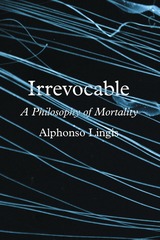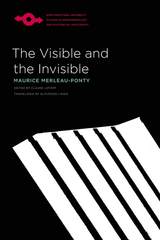
The subject Lingis elaborates in detail is the passionate subject of fantasy, of obsessive commitment, of noble actions, the subject enacting itself through an engagement with others, including animals and natural forces. This is not the linguistic or literary subject posited by structuralism and post-structuralism, nor the rational consciousness posited by post-Enlightenment philosophy. It is rather a being embodied in both a passionate, intensifying activity and a cultural collective made up of embodied others as well as the social rituals and practices that comprise this first person singular.

Whether describing religious art and ritual, suffering, war and disease, the pleasures of love, the wonders of nature, archaeological findings, surfing, volcanoes, or jellyfish, Lingis writes with equal measures of rigor and abandon about the vicissitudes of our practices and beliefs. Knowing that birth, the essential encounters in our lives, crippling diseases and accidents, and even death are all determined by chance, how do we recognize and understand such chance? After facing tragedies, what makes it possible to live on while recognizing our irrevocable losses?
Lingis’s investigations are accompanied by his own vivid photographs from around the world. Balancing the local and the global, and ranging across vast expanses of culture and time, Irrevocable sounds the depths of both our passions and our impassioned bodies and minds.

Klossowski was one of the first philosophers in postwar Europe to ask whether Sade's reason, although aberrant and perverted to evil passions, could be taken seriously. Klossowski's seminal work inspired virtually all subsequent study of Sadean thought, including that of de Beauvoir, Deleuze, Derrida, Bataille, Blanchot, Paulhan, and Lacan.

A traveler to the world’s remote corners muses on human relationships and the nature of travel
Trust is inherent in travel. We ask strangers for directions or for a ride. We live among people whose language, culture, and motivations we don’t understand. Trust binds us to one another with an intoxicating energy; it is brave, giddy, joyous, and lustful. A sudden attraction careens into sexual surrender, and trust becomes unconditional. Trust laughs at danger and leaps into the unknown.
The author of Abuses and Foreign Bodies, Alphonso Lingis has traveled the globe for many years, and in Trust he reflects on journeys from Latin America to Asia to Antarctica. Whether feeding chocolate sauce and tuna to the baboons who visit his campsite in Ethiopia, celebrating the millennial New Year in Mongolia, or indulging in a passionate love affair in Vietnam, Lingis evaluates what happens around him and how it affects him and others. From these experiences he gains new understandings about spirituality, masculinity, love, death, ecstasy, and change. In the tradition of such international travelers as Paul Theroux, Pico Iyer, and Ryszard Kapuscinski, and with insight reminiscent of John Berger and Joan Didion, Lingis shares both the private revelations and the universal connections he acquires on his exotic journeys. “Travel far enough,” he concludes, “and we find ourselves happily back in the infantile world”—where trust is ultimate.
“The Sacred” studies the ways death—the death of others and our own death—fascinates and energizes us. It exhibits the glory in violence and sacrilege. The book culminates in “Splendor,” a study of collective performances that create splendor. Concerning itself most immediately with philosophy, psychology, aesthetics, anthropology, and the theory of religion, Violence and Splendor bridges the discourses of continental philosophy and cross-cultural studies. Further drawing insights from both Western and non-Western traditions, it brings such diverse fields as psychology, art and aesthetics, botany, politics, history, zoology, and religious theory into a new and significant dialogue about the nature of humanity.

READERS
Browse our collection.
PUBLISHERS
See BiblioVault's publisher services.
STUDENT SERVICES
Files for college accessibility offices.
UChicago Accessibility Resources
home | accessibility | search | about | contact us
BiblioVault ® 2001 - 2025
The University of Chicago Press









